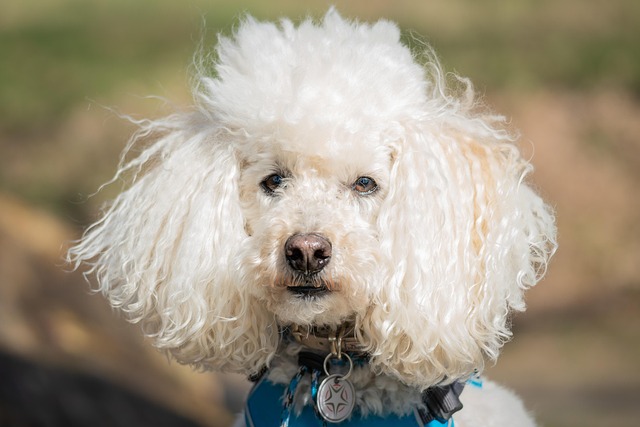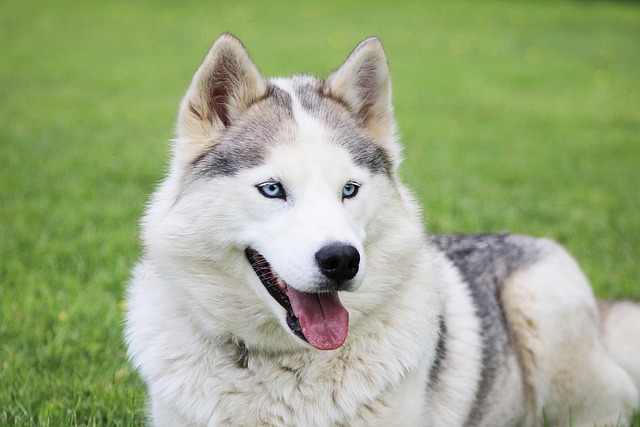
How often should a Poodle be bathed?
That fluffy Poodle coat might look picture-perfect, but keeping it clean comes with questions. Over-bathing strips natural oils, while waiting too long invites dirt and odor.
Bringing home a female Labrador puppy is one of life's most rewarding experiences, yet it comes with unique responsibilities that many new owners don't fully anticipate. Having worked with countless Lab families over the years, I've noticed that female Labradors often display distinct characteristics that require thoughtful, gender-specific care approaches. Understanding these nuances can make the difference between a challenging puppyhood and a beautifully bonded relationship that lasts a lifetime.
Female Labrador puppies typically mature faster than their male counterparts, both physically and mentally. This accelerated development means your little girl will likely reach emotional maturity around 12-18 months, compared to males who might take up to two years. What does this mean for you practically? Your female Lab puppy will probably be more receptive to training earlier, but she'll also test boundaries with remarkable intelligence and persistence.
I've observed that female Labs tend to be more independent and selective about their affections. While males often love everyone unconditionally, females usually choose their favorite family members and can be surprisingly discerning about strangers. This isn't aloofness – it's actually a sign of the thoughtful, protective nature that makes female Labradors exceptional family companions. However, this trait requires early socialization to prevent over-protectiveness or anxiety around new people and situations.
The growth patterns of female Labrador puppies also differ significantly. They typically reach their adult size faster than males, usually around 12-15 months, but they're generally smaller overall. This might seem like an advantage, but it actually requires careful attention to their nutritional needs during those crucial early months. Their bodies are working overtime to develop properly, and the window for optimal growth is narrower than you might expect.
When it comes to female Labrador puppy care, nutrition becomes absolutely critical. These energetic little ones need a carefully balanced diet that supports their rapid development without encouraging excessive weight gain – a common problem in the breed that can lead to joint issues later in life. I always recommend feeding high-quality puppy food specifically formulated for large breeds, as it contains the right calcium-to-phosphorus ratio essential for proper bone development.
Portion control deserves special attention with female Labs. They're often more food-motivated than people realize, and their smaller size means even slight overfeeding can quickly lead to weight issues. A good rule of thumb is to divide their daily food allowance into three meals until they're six months old, then transition to twice daily. You should be able to feel their ribs easily but not see them prominently – think of it as a gentle layer of padding over a firm foundation.
One aspect of breed-specific care for female Labradors that surprises many owners involves their relationship with water and food. While Labs are famous for their swimming abilities, female puppies often need more encouragement to embrace water activities. They tend to be more cautious and methodical in their approach, which actually makes them excellent candidates for structured swimming lessons that build confidence gradually.
Health monitoring takes on particular importance with female Lab puppies because of their unique physiological needs. The conversation about spaying typically begins around four to six months, though recent veterinary research suggests waiting until after their first heat cycle might be beneficial for long-term joint health. This decision should always be made in consultation with your veterinarian, considering your specific circumstances and lifestyle.
Female Labrador puppy health tips extend beyond reproductive considerations. These girls are prone to certain conditions that require vigilant monitoring. Hip and elbow dysplasia, common in the breed, can sometimes be detected early through careful observation of their movement patterns. Watch for any reluctance to jump, unusual sitting positions, or changes in their typical bouncy gait. Early detection and intervention can make a tremendous difference in their quality of life.
Eye health also demands attention in female Labs. Progressive retinal atrophy and cataracts can develop, sometimes with gender-specific prevalence patterns. Regular eye examinations during their puppy visits aren't just routine – they're essential preventive care that can catch issues before they impact your puppy's vision or quality of life.
Training tips for female Labrador puppies require understanding their unique psychological makeup. Females often respond better to positive reinforcement techniques that acknowledge their intelligence and independence. They don't typically need the firm leadership that males might require, but they do need consistent, fair boundaries that respect their developing personality.
I've found that female Labs excel in training environments that challenge their minds as much as their bodies. They're natural problem-solvers who become bored with repetitive exercises much faster than males. Incorporating puzzle toys, varied training routes, and new challenges keeps them engaged and prevents the destructive behaviors that can emerge from understimulation.
Socialization becomes particularly crucial during their critical period between 8-16 weeks. Female Labs who miss proper socialization during this window often develop anxiety or overprotective behaviors that are much harder to address later. However, their natural caution can actually be an advantage – they're less likely to rush into dangerous situations and more likely to look to you for guidance.
House training often progresses more smoothly with female puppies, partly due to their faster maturation and partly because of their generally more refined approach to personal hygiene. That said, they can be surprisingly stubborn about bathroom preferences, sometimes refusing to eliminate in certain weather conditions or locations that they deem unsuitable.
Creating an environment that supports your female Lab puppy's development involves understanding her need for both physical exercise and mental stimulation. These intelligent girls require more complex enrichment than simple fetch games. Hide-and-seek, scent work, and interactive puzzle feeders tap into their natural abilities while building the human-dog bond that's so essential to their happiness.
The exercise needs of female Labrador puppies must be carefully balanced. While they need plenty of activity to prevent behavioral issues, their developing joints can be damaged by excessive high-impact exercise. A good guideline is five minutes of exercise per month of age, twice daily, plus unlimited free play in a safe, enclosed area.
Sleep requirements often surprise new owners. Female Lab puppies typically need 18-20 hours of sleep per day during their first few months. Creating quiet, comfortable spaces where they can retreat when overwhelmed is essential for their emotional development. Many behavioral issues stem from overtired puppies who haven't learned to self-regulate their energy levels.
As your female Labrador puppy grows, you'll discover that the investment in understanding her unique needs pays dividends in the form of a deeply bonded, well-adjusted companion. These remarkable dogs offer a perfect blend of loyalty, intelligence, and gentle strength that makes them ideal family members. The key lies in recognizing that one size doesn't fit all when it comes to care – your female Lab deserves an approach that celebrates her individual characteristics while meeting her specific developmental needs.
Remember that every puppy is an individual, and these gender-specific guidelines should complement, not replace, your veterinarian's advice and your own observations of your puppy's unique personality and needs. The journey of raising a female Labrador puppy is filled with discoveries, challenges, and immeasurable joy – embrace each stage with patience, understanding, and the confidence that comes from being well-informed about her special requirements.

That fluffy Poodle coat might look picture-perfect, but keeping it clean comes with questions. Over-bathing strips natural oils, while waiting too long invites dirt and odor.

You’ve just brought home your adorable husky puppy, all fluffy and full of energy. But with that thick double coat comes a question: how often should I bathe my husky puppy?

Feeding your husky the right food is like fueling a high-performance engine. These energetic, wolf-like dogs have specific nutritional needs that go beyond basic kibble.

You step away for two minutes only to find your curious dachshund, Oscar, sitting innocently beside a torn wrapper where your gourmet dark chocolate bar used to be.

You’ve just found your Bulldog, Daisy, collapsed on the porch after chasing balls in 90°F Miami humidity. Her tongue hangs thick and purple

Watching your once-energetic pup hesitate at the bottom of the stairs, their tail drooping as they struggle to stand after a nap—it’s a heartache no pet parent wants to face.